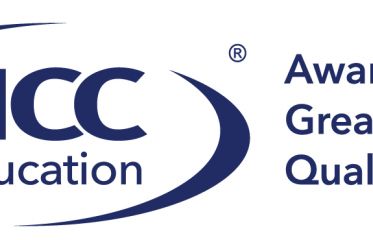
I am a

student

institution

career professional
I need help with
Career Selection & Planning
Find your best-fit career, stream, course or college through advanced assessments and expert guidance.
college applications
Get admits from your dream colleges through end-to-end applications guidance for overseas and liberal arts universities.
I am interested in
Career Development Programs
State-of-the-art career assessments, expert guidance, and more to help students plan their career paths.
Career Advancement Programs
Expert-led MUN training programs, inspirational career talks and more to help students get that added edge.
I am interested in
Getting Certified (ICCC)
Become an International Certified Career Coach through a multi-level credentialing program by Mindler & CDA (USA).
Partnering with Mindler
Expand and grow your career counselling practice by leveraging the full force of Mindler’s career guidance platform.
Ready to discover your perfect career?
Enter your email id to take the Orientation Style test for free.
CAREER COUNSELLING PROGRAMS
Class 8-9
Stream & Subject SelectionAdvanced assessment & personalised guidance to help you select the perfect stream and subjects that align you to the right careers.
Class 10-12
Career Selection & PlanningExpert guidance & 5-dimensional assessment to help you discover your perfect career and choose the right course and college.
Graduates
Career Selection & Development5-dimensional assessment & superior guidance to help you discover your perfect career and choose the best next step.
Thank you for contacting us!
One of our team members will respond in 2 working days to resolve your query. If your query is urgent, you can alternatively call our career helpline.
Ready to pave your way to your dream college?
Leave your details below and we will get in touch shortly.
COLLEGE APPLICATION PROGRAMS
Overseas Application
End-to-end overseas admissions guidance to help you build the perfect applications for your target universities.
Liberal Arts Application
Comprehensive guidance and personalised application development for admissions to Liberal Arts programs.
Thank you for contacting us!
One of our team members will respond in 2 working days to resolve your query. If your query is urgent, you can alternatively call our career helpline.
Ready to give students the best of career guidance?
Leave your details below and we will get in touch shortly.
Career Development Programs
Career Development &
Planning Ecosystem
State-of-the-art assessment & end-to-end career guidance to help students discover their perfect career.
Thank you for contacting us!
One of our team members will respond in 2 working days to resolve your query. If your query is urgent, you can alternatively call our career helpline.
Ready to give your students the added edge?
Leave your details below and we will get in touch shortly.
Career Advancement Programs
MUN Training Program
Expert-led training and comprehensive guidance sessions to help students excel at MUN conferences.
Mindler Talks
Career awareness and inspirational talks for students with professionals who have achieved success in their fields.
Thank you for contacting us!
One of our team members will respond in 2 working days to resolve your query. If your query is urgent, you can alternatively call our career helpline.
Ready to upgrade your career counselling skills?
Enter your email id to start your ICCC application.
Getting Certified (ICCC)
International Certified
Career Coach (ICCC)
A 3-month program with emphasis on global practices, experiential learning & career guidance tools.
Thank you for contacting us!
One of our team members will respond in 2 working days to resolve your query. If your query is urgent, you can alternatively call our career helpline.
Ready to grow as a counsellor?
Leave your details below and we will get in touch shortly.
Partnering with Mindler
Mindler Partner Program
World-class career assessment platform & tools to help you scale up your career counselling practice.
Thank you for contacting us!
One of our team members will respond in 2 working days to resolve your query. If your query is urgent, you can alternatively call our career helpline.
Breaking News
- Flexible Remote Work Opportunity for University Students: Earn $100–$250 Per Month ...Read More
- Ministry of Education and Sports Azerbaijan Government Scholarships For 2025-2026 Academic Year ...Read More
- Government Sponsorship Undergraduate Admission Lists 2025-26 for Makerere University ...Read More
- Ministry of Education And Sports: Egyptian Government Scholarships 2025-2026 Academic Year ...Read More
- Ground Breaker Full Scholarship for girls to study Software Engineering 2025 July Intake ...Read More
- Tony Elumelu Foundation Entrepreneurship Programme (TEEP) 2025 for young African Entrepreneurs ...Read More
- DESIGNING FUTURES 2050 International Design Competition 2025 (€15,000 prize) ...Read More
- Ground Breaker Full time Scholarship for girls to study Software Engineering 2025 Intake ...Read More
- Ministry of Education And Sports Algerian Vocational Training Scholarships for 2024-2025 AY ...Read More
- Ministry of Education and Sports Advert for the Algerian Government Scholarships for 2024-2025 ...Read More
Quality engineer
Quality engineers are in charge of monitoring the quality control of a company's products or services for their customers. This entails discovering different ways to lower production costs and finding different ways to improve the quality of a product.
Add to FavouritesQuality engineers are in charge of monitoring the quality control of a company's products or services for their customers. This entails discovering different ways to lower production costs and finding different ways to improve the quality of a product.
Daily Tasks / Routine Activities
The day to day duties for a company’s quality engineer include a wide range of tasks.
1. They will have to inspect products to make sure that they are compliant with the technical and customer specifications.
2. They typically work with quality technicians in a lab and run measuring equipment such as coordinate measurement machines, and are responsible for quality system maintenance.
3. They also support quality inspectors to make sure that processes and products comply with regulations and meet all the requirements of a quality management system.
4. Quality engineers analyze defects and take action to address customer complaints. Depending on the feedback from customers, quality engineers may have to omit changes in the manufacturing plant in order to improve a product’s function, size, or other characteristics.
5. Compare the product to the original engineer specifications.
6. Quality engineers also have to report any product irregularities to the proper authorities.
7. Developing the different standards and methods for testing, measuring, and analyzing the products or services.
8. Quality engineers are also responsible for the company’s quality documentation. They create quality manuals and procedures, and prepare quality assurance reports.
9. Quality engineers can also investigate the factors surrounding low sales of a product due to poor quality and handle customer and supplier quality issues.
10. A quality engineer decides what metrics will be inspected and in what manner and then conducts tests and applies statistical process control (SPC) tools and methods to identify improper quality control practices and inspects quality systems for deficiencies.
11. Quality engineers frequently collaborate with design engineers to assess the critical product characteristics that will be measured.
12. Once the defects are identified, quality engineers work on eliminating them using tools such as lean manufacturing and Six Sigma.
13. They constantly work on implementing improvements to enhance quality systems and on developing training to improve awareness of quality control issues.
Key knowledge areas
1. Quality management
Skills
1. Quality engineers need to be highly skilled in problem solving and analysis.
2. An understand how to use statistical process control tools and read engineer drawings.
3. They will also need to have a considerable amount of leadership and communication skills, since they will be discussing issues with the product’s design engineers and customers.
Qualifications
Many quality engineers gain skills from getting certified in Six Sigma and Total Quality Management. These techniques improve their company’s processes and procedures while eliminating any defects in the products. Six Sigma is a tool that helps lower the number of defects and variability between products, while Total Quality Management is centered on the philosophy that everyone should be involved with the quality control of the company’s products and services.
-
 Ministry of Education and Sports Commonwealth Scholarships for 2022-2023 Academic Year
Full Scholarship to Study In United Kingdom
Ministry of Education and Sports Commonwealth Scholarships for 2022-2023 Academic Year
Full Scholarship to Study In United Kingdom
Know more -
 Call For Applications for IRELAND-AFRICA Fellows program 2023-2024
Full Masters Scholarship in Ireland
Call For Applications for IRELAND-AFRICA Fellows program 2023-2024
Full Masters Scholarship in Ireland
Know more -
 Call for Applications for Graduate (Masters & Phd) Programmes 2022-2023 at Makerere University
Private Sponsored Masters Programs
Call for Applications for Graduate (Masters & Phd) Programmes 2022-2023 at Makerere University
Private Sponsored Masters Programs
Know more -
Govenment Admitted Students to other Tertiary Public Institutions for 2021-2022 List of Students admitted to tertiary public institutions on government sponsorship
Know more -
 Makerere University List of Students Admitted through Direct Entry on Private Sponsorship for Academic Year 2021-2022
Students Admitted for Academic Year 2021-2022 on Private Sponsorship
Makerere University List of Students Admitted through Direct Entry on Private Sponsorship for Academic Year 2021-2022
Students Admitted for Academic Year 2021-2022 on Private Sponsorship
Know more -
 Islamic Development Bank Undergraduate, Masters & Phd Scholarship Program 2022-2023
Full Scholarship to study abroad
Islamic Development Bank Undergraduate, Masters & Phd Scholarship Program 2022-2023
Full Scholarship to study abroad
Know more -
 Get World Class Online Diplomas with British Qualification
Join us for the information session
Get World Class Online Diplomas with British Qualification
Join us for the information session
Know more -
 Yunus & Youth Global Fellowship Program
Online Fellowship for Social Entrepreneurs
Yunus & Youth Global Fellowship Program
Online Fellowship for Social Entrepreneurs
Know more -
 Fully Funded Mastercard Foundation Scholars Program at USIU-Africa 2021 intake
Fully funded Scholarship to study at the United States International University
Fully Funded Mastercard Foundation Scholars Program at USIU-Africa 2021 intake
Fully funded Scholarship to study at the United States International University
Know more -
 Mandela Rhodes Foundation Postgraduate Scholarships 2020 to study in South Africa (Fully Funded)
Fully Funded Scholarship to Study in South Africa
Mandela Rhodes Foundation Postgraduate Scholarships 2020 to study in South Africa (Fully Funded)
Fully Funded Scholarship to Study in South Africa
Know more -
 Fully Paid Scholarships at Cavendish University for academic year 2021-2022
Study free of tuition at Cavendish University
Fully Paid Scholarships at Cavendish University for academic year 2021-2022
Study free of tuition at Cavendish University
Know more -
 African Leaders Scholarship at African Leadership University
Exceptional leaders and changemakers scholarship
African Leaders Scholarship at African Leadership University
Exceptional leaders and changemakers scholarship
Know more
Draw Inspiration from time tested individuals
-
 Rebecca Atugonza ensures every battery off the assembly line is fit for purpose
Rebecca Atugonza ensures every battery off the assembly line is fit for purpose
Watch Interview -
 Meet Zion Faith Likico, A Quality Control Officer at National Water who ensures that we have clean water
Meet Zion Faith Likico, A Quality Control Officer at National Water who ensures that we have clean water
Watch Interview
Careers that are in the same career field as Quality engineer
-
 Robotics engineer
Know more
Robotics engineer
Know more -
 Quality engineer
Know more
Quality engineer
Know more -
 Production engineer
Know more
Production engineer
Know more -
 Operations engineer
Know more
Operations engineer
Know more -
 Chemical Technician
Know more
Chemical Technician
Know more -
 Purchasing Agent, Except Wholesale, Retail, and Farm Products
Know more
Purchasing Agent, Except Wholesale, Retail, and Farm Products
Know more -
 Electrical and Electronics Drafter
Know more
Electrical and Electronics Drafter
Know more -
 Electronic Drafter
Know more
Electronic Drafter
Know more -
 Electrical Drafter
Know more
Electrical Drafter
Know more -
 Mechanical Drafter
Know more
Mechanical Drafter
Know more -
 Aerospace Engineering and Operations Technician
Know more
Aerospace Engineering and Operations Technician
Know more -
 Electrical and Electronic Engineering Technician
Know more
Electrical and Electronic Engineering Technician
Know more -
 Electronics Engineering Technician
Know more
Electronics Engineering Technician
Know more -
 Electrical Engineering Technician
Know more
Electrical Engineering Technician
Know more -
 Electro-Mechanical Technician
Know more
Electro-Mechanical Technician
Know more -
 Robotics Technician
Know more
Robotics Technician
Know more -
 Industrial Engineering Technician
Know more
Industrial Engineering Technician
Know more -
 Mechanical Engineering Technician
Know more
Mechanical Engineering Technician
Know more -
 Automotive Engineering Technician
Know more
Automotive Engineering Technician
Know more -
 Non-Destructive Testing Specialist
Know more
Non-Destructive Testing Specialist
Know more -
 Electrical Engineering Technologist
Know more
Electrical Engineering Technologist
Know more -
 Electromechanical Engineering Technologist
Know more
Electromechanical Engineering Technologist
Know more -
 Electronics Engineering Technologist
Know more
Electronics Engineering Technologist
Know more -
 Industrial Engineering Technologist
Know more
Industrial Engineering Technologist
Know more -
 Manufacturing Engineering Technologist
Know more
Manufacturing Engineering Technologist
Know more -
 Mechanical Engineering Technologist
Know more
Mechanical Engineering Technologist
Know more -
 Photonics Technician
Know more
Photonics Technician
Know more -
 Manufacturing Production Technician
Know more
Manufacturing Production Technician
Know more -
 Fuel Cell Technician
Know more
Fuel Cell Technician
Know more -
 Nanotechnology Engineering Technologist
Know more
Nanotechnology Engineering Technologist
Know more -
 Nanotechnology Engineering Technician
Know more
Nanotechnology Engineering Technician
Know more -
Biological Technician Know more
-
 Geological Sample Test Technician
Know more
Geological Sample Test Technician
Know more -
 Nuclear Technician
Know more
Nuclear Technician
Know more -
 Nuclear Equipment Operation Technician
Know more
Nuclear Equipment Operation Technician
Know more -
 Postal Service Mail Sorter, Processor, and Processing Machine Operators
Know more
Postal Service Mail Sorter, Processor, and Processing Machine Operators
Know more -
 Order Filler, Wholesale and Retail Sales
Know more
Order Filler, Wholesale and Retail Sales
Know more -
 First-Line Supervisor of Mechanics, Installers, and Repairers
Know more
First-Line Supervisor of Mechanics, Installers, and Repairers
Know more -
 Computer, Automated Teller, and Office Machine Repairers
Know more
Computer, Automated Teller, and Office Machine Repairers
Know more -
 Radio, Cellular, and Tower Equipment Installer and Repairer
Know more
Radio, Cellular, and Tower Equipment Installer and Repairer
Know more -
 Avionics Technician
Know more
Avionics Technician
Know more -
 Electrical and Electronic Installers and Repairer, Transportation Equipment
Know more
Electrical and Electronic Installers and Repairer, Transportation Equipment
Know more -
 Electrical and Electronic Repairers, Commercial and Industrial Equipment
Know more
Electrical and Electronic Repairers, Commercial and Industrial Equipment
Know more -
 Electronic Equipment Installers and Repairers, Motor Vehicle
Know more
Electronic Equipment Installers and Repairers, Motor Vehicle
Know more -
 Electronic Home Entertainment Equipment Installer and Repairer
Know more
Electronic Home Entertainment Equipment Installer and Repairer
Know more -
 Motorcycle Mechanic
Know more
Motorcycle Mechanic
Know more -
 Refrigeration Mechanics and Installer
Know more
Refrigeration Mechanics and Installer
Know more -
 Home Appliance Repairer
Know more
Home Appliance Repairer
Know more -
 Industrial Machinery Mechanic
Know more
Industrial Machinery Mechanic
Know more -
 Telecommunications Line Installers and Repairer
Know more
Telecommunications Line Installers and Repairer
Know more -
 Camera and Photographic Equipment Repairer
Know more
Camera and Photographic Equipment Repairer
Know more -
 Medical Equipment Repairer
Know more
Medical Equipment Repairer
Know more -
 Musical Instrument Repairers and Tuner
Know more
Musical Instrument Repairers and Tuner
Know more -
 Watch Repairer
Know more
Watch Repairer
Know more -
 Maintenance and Repair Workers, General
Know more
Maintenance and Repair Workers, General
Know more -
 Wind Turbine Service Technician
Know more
Wind Turbine Service Technician
Know more -
 Commercial Diver
Know more
Commercial Diver
Know more -
 Fabric Mender, Except Garment
Know more
Fabric Mender, Except Garment
Know more -
 Helpers--Installation, Maintenance, and Repair Workers
Know more
Helpers--Installation, Maintenance, and Repair Workers
Know more -
 Geothermal Technician
Know more
Geothermal Technician
Know more -
 First-Line Supervisors of Production and Operating Worker
Know more
First-Line Supervisors of Production and Operating Worker
Know more -
 Aircraft Structure, Surfaces, Rigging, and Systems Assembler
Know more
Aircraft Structure, Surfaces, Rigging, and Systems Assembler
Know more -
 Coil Winder, Taper, and Finisher
Know more
Coil Winder, Taper, and Finisher
Know more -
 Electrical and Electronic Equipment Assembler
Know more
Electrical and Electronic Equipment Assembler
Know more -
 Electromechanical Equipment Assembler
Know more
Electromechanical Equipment Assembler
Know more -
 Structural Metal Fabricators and Fitter
Know more
Structural Metal Fabricators and Fitter
Know more -
 Fiberglass Laminator and Fabricator
Know more
Fiberglass Laminator and Fabricator
Know more -
 Team Assembler
Know more
Team Assembler
Know more -
 Timing Device Assembler and Adjuster
Know more
Timing Device Assembler and Adjuster
Know more -
 Baker
Know more
Baker
Know more -
 Butcher and Meat Cutter
Know more
Butcher and Meat Cutter
Know more -
 Meat, Poultry, and Fish Cutters and Trimmer
Know more
Meat, Poultry, and Fish Cutters and Trimmer
Know more -
 Slaughterer and Meat Packer
Know more
Slaughterer and Meat Packer
Know more -
 Food and Tobacco Roasting, Baking, and Drying Machine Operator and Tender
Know more
Food and Tobacco Roasting, Baking, and Drying Machine Operator and Tender
Know more -
 Food Batchmaker
Know more
Food Batchmaker
Know more -
 Food Cooking Machine Operators and Tender
Know more
Food Cooking Machine Operators and Tender
Know more -
 Computer-Controlled Machine Tool Operator, Metal and Plastic
Know more
Computer-Controlled Machine Tool Operator, Metal and Plastic
Know more -
 Computer Numerically Controlled Machine Tool Programmer, Metal and Plastic
Know more
Computer Numerically Controlled Machine Tool Programmer, Metal and Plastic
Know more -
 Extruding and Drawing Machine Setter, Operator, and Tender, Metal and Plastic
Know more
Extruding and Drawing Machine Setter, Operator, and Tender, Metal and Plastic
Know more -
 Forging Machine Setter, Operator, and Tender, Metal and Plastic
Know more
Forging Machine Setter, Operator, and Tender, Metal and Plastic
Know more -
 Rolling Machine Setters, Operator, and Tender, Metal and Plastic
Know more
Rolling Machine Setters, Operator, and Tender, Metal and Plastic
Know more -
 Cutting, Punching, and Press Machine Setter, Operator, and Tenders, Metal and Plastic
Know more
Cutting, Punching, and Press Machine Setter, Operator, and Tenders, Metal and Plastic
Know more -
 Drilling and Boring Machine Tool Setters, Operator, and Tender, Metal and Plastic
Know more
Drilling and Boring Machine Tool Setters, Operator, and Tender, Metal and Plastic
Know more -
 Grinding, Lapping, Polishing, and Buffing Machine Tool Setters, Operators, and Tender, Metal and Plastic
Know more
Grinding, Lapping, Polishing, and Buffing Machine Tool Setters, Operators, and Tender, Metal and Plastic
Know more -
 Lathe and Turning Machine Tool Setters, Operator, and Tender, Metal and Plastic
Know more
Lathe and Turning Machine Tool Setters, Operator, and Tender, Metal and Plastic
Know more -
 Milling and Planing Machine Setter, Operator, and Tender, Metal and Plastic
Know more
Milling and Planing Machine Setter, Operator, and Tender, Metal and Plastic
Know more -
 Machinist
Know more
Machinist
Know more -
 Metal-Refining Furnace Operators and Tender
Know more
Metal-Refining Furnace Operators and Tender
Know more -
 Pourer and Caster, Metal
Know more
Pourer and Caster, Metal
Know more -
 Model Maker, Metal and Plastic
Know more
Model Maker, Metal and Plastic
Know more -
 Patternmaker, Metal and Plastic
Know more
Patternmaker, Metal and Plastic
Know more -
 Foundry Mold and Coremaker
Know more
Foundry Mold and Coremaker
Know more -
 Molding, Coremaking, and Casting Machine Setter, Operator, and Tender, Metal and Plastic
Know more
Molding, Coremaking, and Casting Machine Setter, Operator, and Tender, Metal and Plastic
Know more -
 Multiple Machine Tool Setters, Operators, and Tenders, Metal and Plastic
Know more
Multiple Machine Tool Setters, Operators, and Tenders, Metal and Plastic
Know more -
 Tool and Die Makers
Know more
Tool and Die Makers
Know more -
 Welder, Cutter, Solderer, and Brazer
Know more
Welder, Cutter, Solderer, and Brazer
Know more -
 Welder, Cutters, and Welder Fitter
Know more
Welder, Cutters, and Welder Fitter
Know more -
 Solderer and Brazer
Know more
Solderer and Brazer
Know more -
 Welding, Soldering, and Brazing Machine Setters, Operators, and Tenders
Know more
Welding, Soldering, and Brazing Machine Setters, Operators, and Tenders
Know more -
 Heat Treating Equipment Setter, Operator, and Tender, Metal and Plastic
Know more
Heat Treating Equipment Setter, Operator, and Tender, Metal and Plastic
Know more -
 Layout Workers, Metal and Plastic
Know more
Layout Workers, Metal and Plastic
Know more -
 Plating and Coating Machine Setter, Operator, and Tender, Metal and Plastic
Know more
Plating and Coating Machine Setter, Operator, and Tender, Metal and Plastic
Know more -
 Tool Grinder, Filer, and Sharpener
Know more
Tool Grinder, Filer, and Sharpener
Know more -
 Pressers, Textile, Garment, and Related Materials
Know more
Pressers, Textile, Garment, and Related Materials
Know more -
 Sewing Machine Operator
Know more
Sewing Machine Operator
Know more -
 Shoe and Leather Workers and Repairer
Know more
Shoe and Leather Workers and Repairer
Know more -
 Shoe Machine Operators and Tender
Know more
Shoe Machine Operators and Tender
Know more -
 Tailor, Dressmaker, and Custom Sewer
Know more
Tailor, Dressmaker, and Custom Sewer
Know more -
 Textile Bleaching and Dyeing Machine Operator and Tender
Know more
Textile Bleaching and Dyeing Machine Operator and Tender
Know more -
 Textile Cutting Machine Setter, Operator, and Tender
Know more
Textile Cutting Machine Setter, Operator, and Tender
Know more -
 Textile Knitting and Weaving Machine Setter, Operator, and Tender
Know more
Textile Knitting and Weaving Machine Setter, Operator, and Tender
Know more -
 Textile Winding, Twisting, and Drawing Out Machine Setters, Operator, and Tenders
Know more
Textile Winding, Twisting, and Drawing Out Machine Setters, Operator, and Tenders
Know more -
 Extruding and Forming Machine Setter, Operator, and Tender, Synthetic and Glass Fiber
Know more
Extruding and Forming Machine Setter, Operator, and Tender, Synthetic and Glass Fiber
Know more -
 Fabric and Apparel Patternmaker
Know more
Fabric and Apparel Patternmaker
Know more -
 Upholsterer
Know more
Upholsterer
Know more -
 Cabinetmaker and Bench Carpenter
Know more
Cabinetmaker and Bench Carpenter
Know more -
 Furniture Finisher
Know more
Furniture Finisher
Know more -
 Model Maker, Wood
Know more
Model Maker, Wood
Know more -
 Patternmaker, Wood
Know more
Patternmaker, Wood
Know more -
 Sawing Machine Setter, Operator, and Tender, Wood
Know more
Sawing Machine Setter, Operator, and Tender, Wood
Know more -
 Woodworking Machine Setter, Operator, and Tender, Except Sawing
Know more
Woodworking Machine Setter, Operator, and Tender, Except Sawing
Know more -
 Nuclear Power Reactor Operator
Know more
Nuclear Power Reactor Operator
Know more -
 Power Distributor and Dispatcher
Know more
Power Distributor and Dispatcher
Know more -
 Water and Wastewater Treatment Plant and System Operator
Know more
Water and Wastewater Treatment Plant and System Operator
Know more -
 Chemical Plant and System Operator
Know more
Chemical Plant and System Operator
Know more -
 Gas Plant Operator
Know more
Gas Plant Operator
Know more -
 Petroleum Pump System Operator, Refinery Operator, and Gauger
Know more
Petroleum Pump System Operator, Refinery Operator, and Gauger
Know more -
 Biofuels Processing Technician
Know more
Biofuels Processing Technician
Know more -
 Methane/Landfill Gas Generation System Technician
Know more
Methane/Landfill Gas Generation System Technician
Know more -
 Biomass Plant Technician
Know more
Biomass Plant Technician
Know more -
 Hydroelectric Plant Technician
Know more
Hydroelectric Plant Technician
Know more -
 Chemical Equipment Operators and Tender
Know more
Chemical Equipment Operators and Tender
Know more -
 Separating, Filtering, Clarifying, Precipitating, and Still Machine Setter, Operators, and Tender
Know more
Separating, Filtering, Clarifying, Precipitating, and Still Machine Setter, Operators, and Tender
Know more -
 Crushing, Grinding, and Polishing Machine Setters, Operators, and Tenders
Know more
Crushing, Grinding, and Polishing Machine Setters, Operators, and Tenders
Know more -
 Grinding and Polishing Workers, Hand
Know more
Grinding and Polishing Workers, Hand
Know more -
 Mixing and Blending Machine Setter, Operator, and Tender
Know more
Mixing and Blending Machine Setter, Operator, and Tender
Know more -
 Cutters and Trimmers, Hand
Know more
Cutters and Trimmers, Hand
Know more -
 Cutting and Slicing Machine Setter, Operator, and Tender
Know more
Cutting and Slicing Machine Setter, Operator, and Tender
Know more -
 Extruding, Forming, Pressing, and Compacting Machine Setter, Operator, and Tender
Know more
Extruding, Forming, Pressing, and Compacting Machine Setter, Operator, and Tender
Know more -
 Furnace, Kiln, Oven, Drier, and Kettle Operator and Tender
Know more
Furnace, Kiln, Oven, Drier, and Kettle Operator and Tender
Know more -
 Inspector, Tester, Sorter, Sampler, and Weigher
Know more
Inspector, Tester, Sorter, Sampler, and Weigher
Know more -
Jeweler and Precious Stone and Metal Worker Know more
-
 Jeweler
Know more
Jeweler
Know more -
 Gem and Diamond Worker
Know more
Gem and Diamond Worker
Know more -
 Precious Metal Worker
Know more
Precious Metal Worker
Know more -
 Dental Laboratory Technician
Know more
Dental Laboratory Technician
Know more -
 Medical Appliance Technician
Know more
Medical Appliance Technician
Know more -
 Ophthalmic Laboratory Technician
Know more
Ophthalmic Laboratory Technician
Know more -
 Packaging and Filling Machine Operators and Tender
Know more
Packaging and Filling Machine Operators and Tender
Know more -
 Coating, Painting, and Spraying Machine Setter, Operator, and Tender
Know more
Coating, Painting, and Spraying Machine Setter, Operator, and Tender
Know more -
 Painter, Transportation Equipment
Know more
Painter, Transportation Equipment
Know more -
 Painting, Coating, and Decorating Workers
Know more
Painting, Coating, and Decorating Workers
Know more -
 Semiconductor Processor
Know more
Semiconductor Processor
Know more -
 Photographic Process Workers and Processing Machine Operator
Know more
Photographic Process Workers and Processing Machine Operator
Know more -
 Adhesive Bonding Machine Operators and Tender
Know more
Adhesive Bonding Machine Operators and Tender
Know more -
 Cleaning, Washing, and Metal Pickling Equipment Operator and Tender
Know more
Cleaning, Washing, and Metal Pickling Equipment Operator and Tender
Know more -
 Cooling and Freezing Equipment Operators and Tender
Know more
Cooling and Freezing Equipment Operators and Tender
Know more -
 Etchers and Engraver
Know more
Etchers and Engraver
Know more -
 Molder, Shaper, and Caster, Except Metal and Plastic
Know more
Molder, Shaper, and Caster, Except Metal and Plastic
Know more -
 Stone Cutter and Carver, Manufacturing
Know more
Stone Cutter and Carver, Manufacturing
Know more -
 Glass Blower, Molder, Bender, and Finisher
Know more
Glass Blower, Molder, Bender, and Finisher
Know more -
 Potter, Manufacturing
Know more
Potter, Manufacturing
Know more -
 Molding and Casting Worker
Know more
Molding and Casting Worker
Know more -
 Paper Good Machine Setter, Operator, and Tender
Know more
Paper Good Machine Setter, Operator, and Tender
Know more -
 Tire Builder
Know more
Tire Builder
Know more -
 Helpers--Production Worker
Know more
Helpers--Production Worker
Know more -
 Laborers and Freight, Stock, and Material Movers, Hand
Know more
Laborers and Freight, Stock, and Material Movers, Hand
Know more
Online Training in Manufacturing
Latest Jobs Corner
-
42 Branch Sales Personnel / Administrator Jobs – Prestige Driving School Uganda
Posted: Posted Sun, 30 Nov 2025 04:10:28 +0000 -
25 Driver Job Opportunities – Prestige Driving School
Posted: Posted Sun, 30 Nov 2025 04:10:27 +0000 -
Administration Officer Jobs – World Vision Uganda
Posted: Posted Sat, 29 Nov 2025 05:01:12 +0000 -
Climate Smart Agriculture Specialist Jobs – World Vision Uganda
Posted: Posted Sat, 29 Nov 2025 05:01:00 +0000 -
Fresher Officer, Finance & Value Management, BCB Jobs – Stanbic Bank Uganda
Posted: Posted Sat, 29 Nov 2025 05:00:43 +0000 -
Senior Driver Jobs – Insieme si può (ISP)
Posted: Posted Sat, 29 Nov 2025 05:00:29 +0000 -
Area Sales Manager Jobs – Coca-Cola Beverages Africa
Posted: Posted Sat, 29 Nov 2025 05:00:11 +0000 -
Health and Safety Officer (HSO) Jobs – M-Forte
Posted: Posted Sat, 29 Nov 2025 04:59:58 +0000 -
Geotechnical & Materials Engineer Jobs – M-Forte
Posted: Posted Sat, 29 Nov 2025 04:59:47 +0000 -
CAD Technologist (Civil/Architecture) Jobs – M-Forte
Posted: Posted Sat, 29 Nov 2025 04:59:26 +0000
Advertisement
Advertisement
Popular Careers
-
Civil Engineer
29991 Views -
Actor
24215 Views -
Flight attendant
22210 Views -
Fashion Designer
20519 Views -
Pilot and flight engineer
19106 Views
























